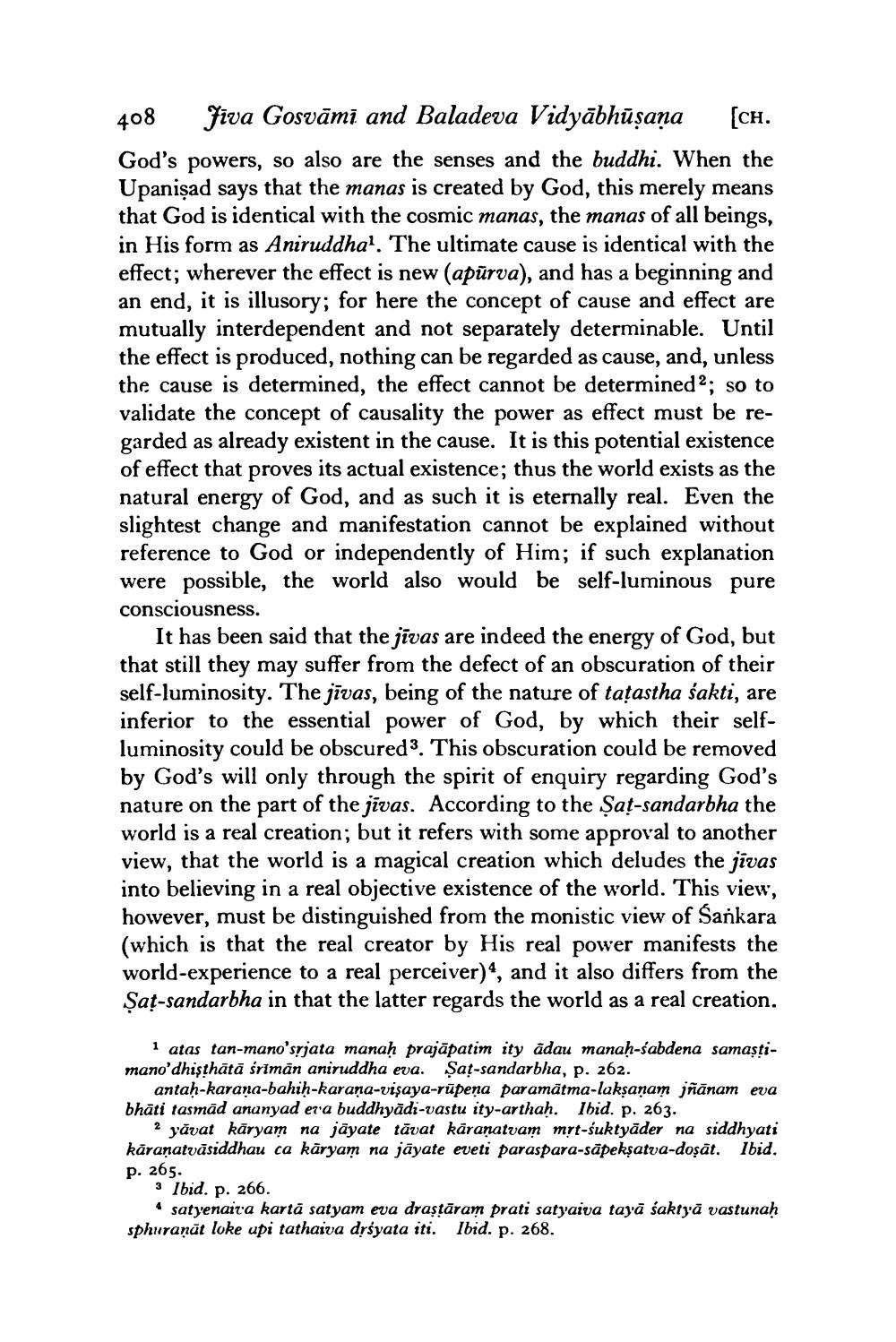________________
408 Jiva Gosvāmī and Baladeva Vidyābhūsaņa [CH. God's powers, so also are the senses and the buddhi. When the Upanişad says that the manas is created by God, this merely means that God is identical with the cosmic manas, the manas of all beings, in His form as Aniruddha'. The ultimate cause is identical with the effect; wherever the effect is new (apūrva), and has a beginning and an end, it is illusory; for here the concept of cause and effect are mutually interdependent and not separately determinable. Until the effect is produced, nothing can be regarded as cause, and, unless the cause is determined, the effect cannot be determined?; so to validate the concept of causality the power as effect must be regarded as already existent in the cause. It is this potential existence of effect that proves its actual existence; thus the world exists as the natural energy of God, and as such it is eternally real. Even the slightest change and manifestation cannot be explained without reference to God or independently of Him; if such explanation were possible, the world also would be self-luminous pure consciousness.
It has been said that the jivas are indeed the energy of God, but that still they may suffer from the defect of an obscuration of their self-luminosity. The jīvas, being of the nature of taţastha sakti, are inferior to the essential power of God, by which their selfluminosity could be obscured. This obscuration could be removed by God's will only through the spirit of enquiry regarding God's nature on the part of the jīvas. According to the Șat-sandarbha the world is a real creation; but it refers with some approval to another view, that the world is a magical creation which deludes the jīvas into believing in a real objective existence of the world. This view, however, must be distinguished from the monistic view of Sankara (which is that the real creator by His real power manifests the world-experience to a real perceiver), and it also differs from the Sat-sandarbha in that the latter regards the world as a real creation.
ata manaḥ prajāpat-sandarbha, p. 262ionam jñānam eva
i atas tan-mano'srjata manaḥ prajāpatim ity adau manah-sabdena samastimano'dhisthātā sriman aniruddha eva. Şat-sandarbha, p. 262.
antah-karana-bahih-karana-visaya-rūpena paramātma-laksanam jñānam eva bhāti tasmad anunyad er'a buddhyādi-vastu ity-arthah. Ibid. p. 263.
2 yāvat kāryam na jāyate tāvat karanatvam mrt-śuktyāder na siddhyati kāranatvāsiddhau ca kāryam na jāyate eveti paraspara-sāpeksatva-dosāt. Ibid.
p. 265.
3 Ibid. p. 266.
satyenaira karta satyam eva drastāram prati satyaiva tayā saktyā vastunaḥ sphuraņāt loke upi tathaiva drśyata iti. Ibid. p. 268.




